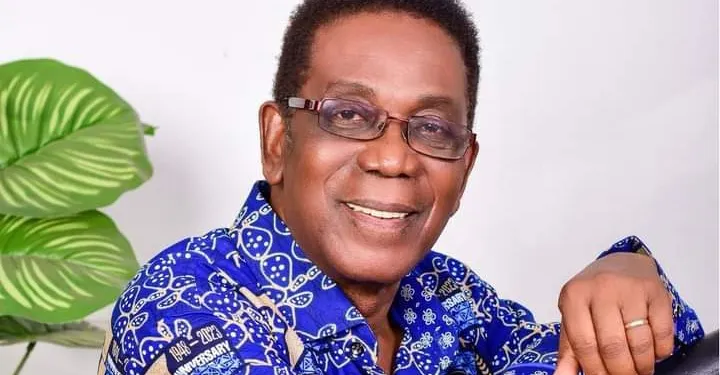Prof Kwesi Yankah Writes: Delegates’ cocoa season
And how is this done? Give ‘transport’ money to delegates that travel any distance to meet you, or even to vote you out. As for general meeting with delegates, they invariably know your message ahead of your coming; but they have to see you all the same.
There are types of cocoa season these days: that for farmers, where a good cocoa harvest enables them to properly their lick fingers at Xmas; the headmasters’ cocoa season, where all eyes are on the headmaster/headmistress to admit ‘my son, ‘my daughter,’ ‘my nephew,’ ‘my landlord’s step-daughter.’
The past year or so may then be called the ‘Delegates Cocoa Season’, where the delegate’s thumb is in multiple demands by the arrogant politician; he now abandons social distancing protocols and chases the delegate to his cassava farm, ever prepared to assist him to harvest.
But who is a delegate? He is often that casual passerby playing draughts at the town square, or crushing coconut to quench the thirst of pedestrians. Returning from the farm, he may wield a cutlass slashing excess weed here and there to allow free passage of vehicles. In an election year the same person is a VIP, not responding to the title farmer. ‘Delegate’, ‘Polling Station Executive,’ or ‘Honorable,’ is the preferred title.
Not a government representative at any conference in Geneva, ‘Honorable’ may be representing his electoral area at a political conference of thumbs. It is even more intimidating adding a prefix to have a ‘super delegate’ in your neighborhood. They belong to a higher category of representation and constitute an upper house, that may take higher executive decisions with thumbs.
One delegate whispered in my ears the other day: ‘This year our cocoa season has been good, and will continue through Christmas,’ pointing to the number of times their thumbs have been engaged. He continued in coded language:
“Candidate X gave us three-three, and the other gave four-four…. Before then, it was one-one, which was topped by the other with two-two. In between, they have been sending people to visit us and soften the grounds. But while one candidate gives to all of us, the other carefully picks his people only, and leaves out the rest. So far I have got nearly one thousand,” he grinned in self-satisfaction.
What do you think of Candidate Y?
“He is a good man and speaks well, but his T & T is small.”
What of Candidate Z?
“We never saw him personally; he is always talking to us through Peace FM. He should let Peace FM vote for him that day.”
What about Candidate B?
“That short man is fine, but he is wasting his time. If X wins he should give him farm produce to eat.”
What of Candidate C?
“He is good, but the T & T he brought the other day, the chairman has sat on it.”
Listening carefully, one gets the impression that the delegate market booms when the contestants are in multiple numbers. Big men in various party offices who arbitrarily declare one contestant as unopposed often cause a great harm. Multiple aspirants boost the stomach welfare of grassroots delegates and the rural economy. Stomach welfare is all what democracy is about these days.
And how is this done? Give ‘transport’ money to delegates that travel any distance to meet you, or even to vote you out. As for general meeting with delegates, they invariably know your message ahead of your coming; but they have to see you all the same. At the meeting a good number may doze through your speech, but suddenly wake up to Item 13: ‘something small for transport.’ It is within ‘the small transport’ that your destiny may be decided. If you are mean-fisted, don’t count on delegates; you may have to bring down your spouse and children to vote for you. But the money is not just for transport: ‘while waiting for the meeting to start, you may have bought doughnuts, koose or atwummmo. The transport money covers all that. In the village economy, transport money has a wider spread: it sometimes doubles as your whole annual income. It may be small change for the politician, but a gross annual income for the rural delegate. The T & T of 300 may indeed be the biggest amount he has held the whole year. Poverty levels are indeed under-represented in rural Ghana.
What happens during delegates cocoa season is indeed nature’s way of redistributing or returning to the poor man, his lost treasures mysteriously ‘discovered’ in the cities by the politician. It is nature’s way of circulating accumulated social capital.
No wonder in the past several months of delegate conferences all over the country, insolvent children can return to school; school uniforms can be bought; Nsawam bread and doughnut sellers are all smiles; and the local pastor merrily dances; for his collection bowl ‘now runneth over.’
Indeed God is good.


